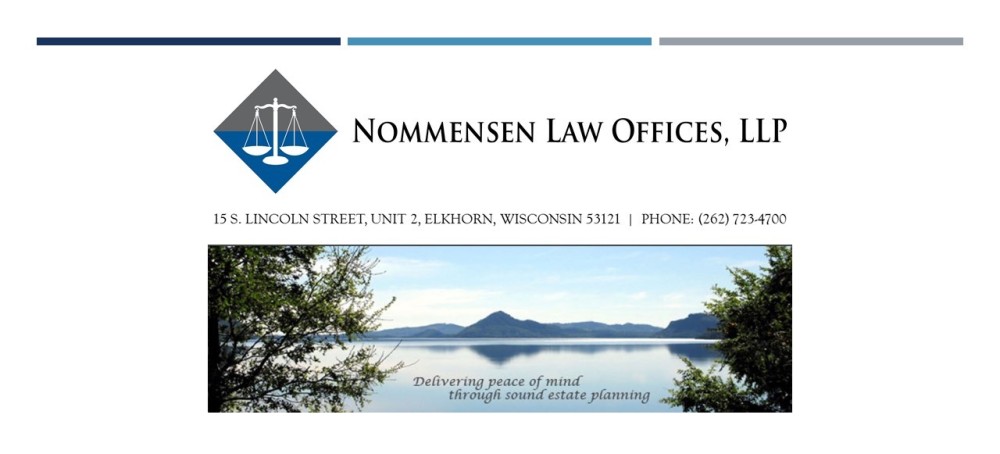Probate & Estate Administration
The death of a loved one is an emotionally difficult time. Let Nommensen Law Offices guide you through the complex legal process. Our attorneys can assist you and your family with all the necessary steps involved in probate and estate administration, including:
- Filing of a Last Will & Testament (or, opening the estate without a Will)
- Appointment of Personal Representative
- Gathering and inventorying the decedent’s assets
- Filing all of the necessary papers with the Probate court, including the Inventory, Final Account, and Closing Statement
- Attend any court hearings on behalf of the personal representative
- Handling claims of creditors
- Analyzing tax and other financial matters
- Assisting with the transfer / distribution of assets to heirs
Frequently Asked Questions about Probate:
What is Probate?
Probate is the court-supervised legal procedure for transferring ownership of someone’s assets after he or she dies. The decedent’s property is distributed in accordance with the Will, or if the decedent left no will, then in accordance with the state laws of intestate succession.
How Much Does Probate Cost?
The major fees involved in Probate consist of the following: court filing fees, attorney fees, and personal representative fees. Attorney fees vary based upon the complexity of each estate. In general, all fees are paid from the decedent’s estate.
How Long Does Probate Take?
On average, it takes about 6-18 months for an estate to go through Probate. The amount of time depends on the type and extent of assets, tax issues, creditors’ claims, etc. If there is real estate to be sold, the market plays a large role in how quickly the estate may be probated.
Is Probate Always Necessary?
No. A probate may not be necessary if the value of the decedent’s probate assets totals less than $50,000.00. It is important to talk with an attorney to determine whether or not probate can be avoided.
What Should I Bring to the First Appointment with the Attorney?
The following items would be helpful at the initial consultation:
- Death Certificate
- Last Will & Testament (if any)
- A list of the decedent’s major assets, along with any documentation as to value
- Information on life insurance policies, pension plans, and other assets
- The decedent’s latest income tax return
- Names and addresses of next of kin, and all people named in the Will
